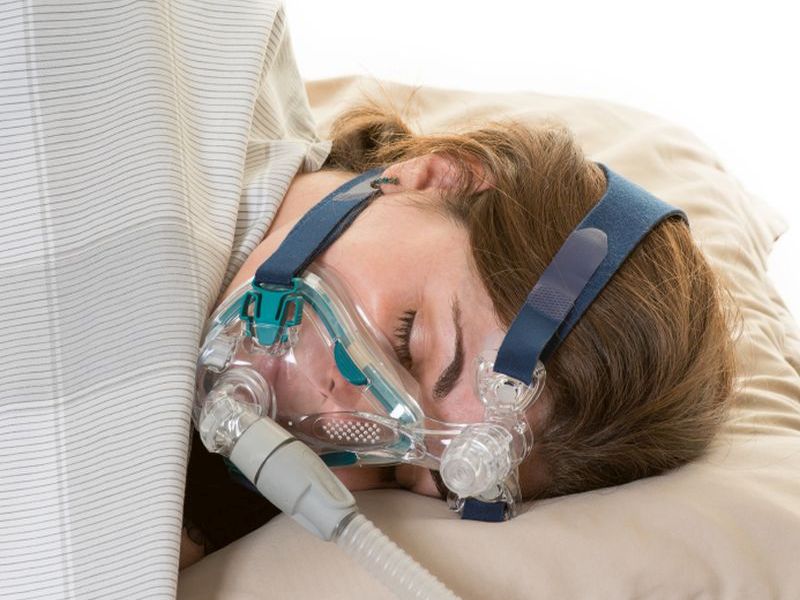Snorers, Could CPAP Help Your Sex Life, Too?
 By Dennis Thompson
By Dennis ThompsonHealthDay Reporter
Latest Sexual Health News
THURSDAY, May 24, 2018 (HealthDay News) -- Women with sleep apnea might experience a boost in their sex life if they regularly use a CPAP machine, a new study shows.
Researchers found that women who used the device nightly reported a significant improvement in their sexual satisfaction after a year of treatment.
The same benefit was not seen in men, however.
Still, "this [study] provides further evidence that if patients have problems with their sleep, they should be evaluated by their provider because treatment of their sleep apnea can have tremendous benefit in their lives all around," said lead researcher Dr. Sebastian Jara, an otolaryngologist with the University of Washington School of Medicine in Seattle.
Sleep apnea occurs when a person's upper airway becomes blocked during sleep, causing the person to gasp, snore and wake up when the blockage stops their breathing. In adults, obesity is a common cause.
Sleep apnea has been linked to increased risk of heart disease, atrial fibrillation, dementia, kidney disease, type 2 diabetes, pregnancy complications and several forms of cancer, according to the U.S. National Institutes of Health.
Many studies also have linked sleep apnea to poor sexual function, particularly in men, Jara said. Men with sleep apnea are more likely to have erectile dysfunction and less frequent sex.
CPAP (continuous positive airway pressure) machines are the main treatment for sleep apnea. Patients wear a mask at bedtime that increases air pressure in their throat, to prevent their airway from collapsing as they sleep.
To test whether using a CPAP machine can improve sexual function, Jara and his colleagues recruited 182 people (115 men and 67 women) with newly diagnosed sleep apnea. These patients answered a quality-of-life survey that included questions about their sex life, including ability to have sex and their desire for sex.
Among the patients, 72 used a CPAP nightly and 110 either did not or could not. Researchers tracked CPAP use through data collected by the device, Jara said.
After a year, patients filled out the same quality-of-life questionnaire again, so researchers could detect any changes.
"We saw a strong effect in women, and a minimal-to-no effect in men," Jara said.
Jara isn't sure why the study didn't reveal a positive effect for men, given previous studies that have tied sleep apnea to poor sex for men.
There are a couple of possible reasons why CPAP produced the improvements that were seen, Jara said.
It could be that sleep apnea is interfering with sexual function in some biological way, or it could be that people using CPAP simply feel better and are more up for sex, he said.
Dr. David Rapoport is a professor of sleep medicine with the Icahn School of Medicine at Mount Sinai in New York City.
"We know that CPAP when you use it makes you feel better," he said. "If you improve depression, if you improve energy and vitality, it's not terribly surprising that sexual function improves. Everybody knows that when you feel lousy, sex is not high on your list."
Rapoport suspects men in the study might have experienced a similar improvement in their sex lives, but researchers simply didn't capture that data.
"Just because you don't show something happening doesn't mean it didn't. It just means you couldn't show it," said Rapoport, who wasn't involved with the research.
The study was published online May 24 in JAMA Otolaryngology-Head & Neck Surgery.

মন্তব্যসমূহ
একটি মন্তব্য পোস্ট করুন